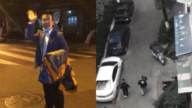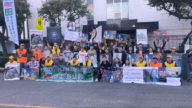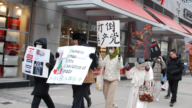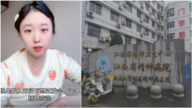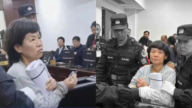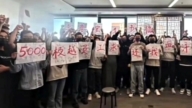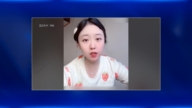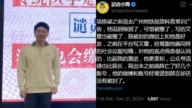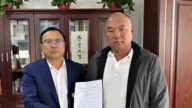【新唐人2013年10月26日讯】10月22号,总部位于美国华盛顿特区的非政府组织“自由之家”(Freedom House),发表了一项研究报告,其中透露,中共近几年来,逐渐将箝制新闻自由的手段延伸到了海外。下面请跟本台记者一起去了解。
这份为国际媒体援助中心(Center for International Media Assistance)撰写的报告中,身为作者的“自由之家”分析师萨拉•库克(Sarah Cook),追踪了中共对中国海内外西方媒体、和中文媒体,以及东南亚、非洲和拉美其他媒体的影响后,得出了中共逐渐将它令人担忧的新闻出版审查制度伸展到了海外。
国际记者联合会香港和中国区代表胡丽云:“我们也看见,有这个报告发出来,也是觉得挺担心。中共官方的任何人,每一次对媒体要写报导的时候,他们就挺关注的,这已经是他们的一个习惯了。中共一直的做法就是在还没有去报导之前,就尽量去影响媒体。”
自由之家的报告中,将中共向海外媒体的施压分为4种方式,包括中共官员直接惩罚拒不听从中共对媒体报导限制的海外媒体﹔或通过利诱,引导媒体自我审查﹔以及通过外国政府或广告商等代理人,间接施压﹔最后是采取网路攻击和人身攻击(但报告表明,无法追踪证实中共当局有这类行为)。
库克说,中共会依据不同的媒体类型,采取不同的攻击手段。
对于大型国际媒体,中共会采用网路攻击,或向广告商、卫星公司间接施压,以削弱它们在中国境内报导的能力。例如,美国《华尔街日报》和《纽约时报》证实,曾遭到中国黑客的攻击。而且《纽约时报》的多名记者的签证被中共当局延迟。
对于海外非政府组织的独立媒体《新唐人电视台》、和《大纪元》新闻网,也频频发生中共利用黑客攻击网站的事件。
2005年,中共当局试图迫使“欧洲通讯卫星公司”,终止与《新唐人》刚签订的租用W5卫星,向中国大陆及亚洲广播的协定,但是未能成功。
胡丽云:“最极具影响媒体的就是广告商,透过他们去施压,而影响媒体的内容,或者是采访的方向,(是)他们现在去做的这一个手段,其实也是过去在中共境内华人社区里面,已经习惯用这个方法。”
早在2009年,《大纪元》旗下的《新纪元周刊》,曾报导美国独立非盈利机构“詹姆斯通基金会(Jamestown Foundation)”在2001年11月21号发表的一篇文章,其中指出,美国的《世界日报》、《星岛日报》、《明报》和《侨报》,都受着中国大陆直接或间接的控制。
库克在报告中说,在南亚和东南亚等中共能大幅施展经济手腕的地方,经常利用政府官员逼迫当地报纸,对中共进行正面报导。报告举例说,有两名越南人因藉由《希望之声国际广播电台》的短波向中国广播节目,而于2010年被捕。
而在台湾和香港等地,中共则是不断加强舆论控制。已故的香港支联会主席司徒华曾表示,《凤凰卫视》不只是受中共资助控制,而且里面的主要负责人都有国安背景。
胡丽云:“中国对香港媒体的影响都是一直在发生,越来越厉害 他们都是用不同的方式,去笼络一些香港媒体的管理层。比如说,最近,他们又去邀请香港行政管理层全体,到国内去旅游。真的是透过一个远的方向去影响他们,”
自由之家的报告鼓励全球所有媒体,公开它们所面临的中共压力,同时,公开批评那些没有尽力对在华工作记者提供保护的政府。
采访/易如 编辑/田净 后制/萧宇
Chinese Regime’s Censorship Extends Overseas
On Oct.22, Freedom House, a non-profit organization
headquartered in Washington, DC, published a study report.
It revealed that the Chinese Communist Party (CCP) has
gradually extended its suppression of freedom overseas.
Let’s follow our NTD reporter and learn a little more.
In this report from the Center for International Media
Assistance, author Sarah Cook tracked the effect of the CCP
towards Western media and overseas Chinese media,
including media in Southeast Asia, Africa, and Latin America.
She concluded that the CCP had extended
its news censorship overseas.
Hu Liyun, representative of the International Correspondents
Association of Hong Kong and China: “We have seen
this report, which is quite worrisome.
All Chinese officials are concerned about media reports.
The CCP has practiced this routine for some time and now
it has become a habit.
They focus on media reports and try to influence the media
before they publish them.”
In the Freedom House report, the CCP puts pressure from
four different directions on overseas media.
The CCP directly punishes overseas media for refusing
to follow its restrictions.
The CCP guides the media to self-censorship through
inducements.
The CCP indirectly puts pressure through foreign
governments or advertising agents.
And finally, the CCP may apply cyber attacks or physical
attacks (but the report indicated that it was unable
to track the Chinese authorities for such behaviors.)
Cook said that the CCP takes a different approach
with different media.
For large international media, the CCP will use cyber attacks
to diminish their abilities to report in China.
For example, the Wall Street Journal and the New York
Times both confirmed that they had been subjected
to Chinese hackers.
In addition, many reporters from the New York Times
ran into visa delay issues with Chinese authorities.
The CCP’s hackers often attacked overseas independent
media, such as NTD Television and the Epoch Times.
In 2005, the CCP tried to force Eutelsat to terminate
its contract with NTD Television for a lease of W5 satellite
to broadcast to Mainland China and Asia, but failed.
Hu Liyun: “For media, advertisers are most influential.
The CCP likes to use advertisers to impact media content
or the direction of interviews.
They are doing this, for they have grown accustomed to using
this method.”
As early as 2009, the Epoch Times’ New Era Weekly
reported that Jamestown Foundation, an independent
non-profit organization, published an article in 2001
which stated that many US newspapers such as World News,
Sing Dao Daily, Ming Bao and Qiao Bao were directly
or indirectly controlled by the CCP.
Cook said in the report that the CCP can use substantial
economic means to entice local officials to force
local newspapers to report positively on the CCP.
For example, two Vietnamese were arrested in 2010
for broadcasting to China by Sound of Hope Radio.
In Taiwan and Hong Kong, the CCP continues to strengthen
its control of public opinion.
Szeto, the late chairman of the Hong Kong alliance,
said that not only is Phoenix Satellite funded and controlled
by the CCP, but also all personnel in charge have a national
security background.
Hu Liyun: “China’s impact on Hong Kong has been
continuous and more and more powerful.
They use different means to win over Hong King’s media
management.
For instance, recently, they invited all Hong Kong
management to tour Mainland China.
This affects people really far and deep.”
The Freedom House report encourages reporters world-wide
to publicly reveal the pressure they face from the CCP.
Meanwhile, it also publicly criticized those governments
which do not try to protect their reporters who work in China.


